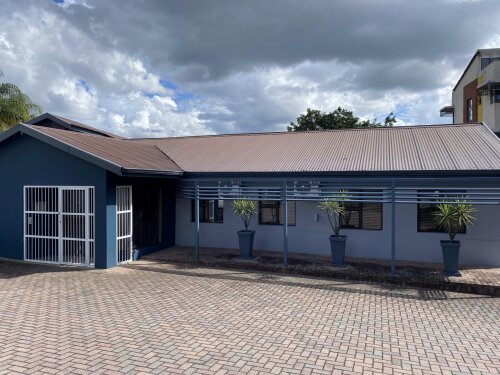Best International Trade Law Lawyers in Johannesburg
Share your needs with us, get contacted by law firms.
Free. Takes 2 min.
List of the best lawyers in Johannesburg, South Africa
South Africa International Trade Law Legal Articles
Browse our 2 legal articles about International Trade Law in South Africa written by expert lawyers.
- Managing Import Tariffs and Customs Disputes in South Africa
- Key Takeaways Managing import tariffs and resolving customs disputes in South Africa requires strict adherence to timelines and precise commodity classification. Navigating the South African Revenue Service (SARS) framework effectively protects businesses from costly delays and penalties. You have exactly 30 days to file a Notice of Objection against a... Read more →
- Repatriating Profits: South Africa Foreign Investment Laws
- Repatriating Profits: Foreign Investment Laws in South Africa South Africa offers a sophisticated legal framework for international investors, but the movement of capital across its borders is strictly governed by the South African Reserve Bank (SARB). Navigating these regulations is essential for any foreign-owned entity looking to return profits to... Read more →
About International Trade Law in Johannesburg, South Africa
International Trade Law in Johannesburg, South Africa, encompasses a wide array of regulations and agreements governing trade between South African entities and international markets. These regulations ensure the smooth flow of goods, services, and investments across borders, under the regulatory frameworks established by international agreements, such as the World Trade Organization (WTO) agreements, along with South Africa's specific trade policies. Johannesburg, as a key economic hub in South Africa, is a focal point for international trade activities, attracting businesses and legal professionals who specialize in navigating the complexities of these trade laws.
Why You May Need a Lawyer
Engaging a lawyer specializing in International Trade Law might be necessary for several situations:
- Compliance: Ensuring your business complies with international trade regulations and import/export controls.
- Contracts: Drafting, reviewing, and negotiating international trade agreements or contracts.
- Dispute Resolution: Handling disputes or litigation related to trade issues, including breach of contract or tariff disagreements.
- Market Entry: Advising on foreign market entry strategies, investment regulations, and securing necessary licenses and permits.
- Trade Barriers: Navigating non-tariff barriers, quotas, and protectionist measures that may impact trade.
Local Laws Overview
In Johannesburg, and South Africa at large, several legal aspects are crucial for International Trade Law:
- Customs and Excise Act: Governs the customs duties, exemptions, and procedures for goods entering or exiting South Africa.
- International Trade Administration Act: Establishes mechanisms for trade administration, including tariffs and import/export controls.
- Consumer Protection Act: Protects consumers but also impacts how importers/exporters manage products entering the South African market.
- National Credit Act: Influences transactions that involve financing and credit arrangements in trade.
Frequently Asked Questions
What is the role of the National Regulator for Compulsory Specifications (NRCS) in international trade?
The NRCS sets and enforces compulsory specifications and technical regulations to ensure safe products enter the market, affecting what goods can be legally traded in South Africa.
How do tariffs affect international trade in Johannesburg?
Tariffs are taxes on imports that can affect the cost and competitiveness of goods. Understanding applicable tariffs is essential for pricing strategy in international trade.
What is a trade agreement, and why is it important?
Trade agreements are treaties between two or more nations to establish a mutually beneficial trade framework, often reducing trade barriers like tariffs and import quotas.
What is the African Continental Free Trade Area (AfCFTA), and how does it relate to Johannesburg?
The AfCFTA aims to create a single continental market for goods and services in Africa. Johannesburg businesses need to understand its implications to benefit from increased trade across African borders.
How does VAT apply to imports and exports?”
Value Added Tax (VAT) applies to imports, impacting the total cost. Exports from South Africa are often zero-rated, meaning no VAT is charged, making them more competitive abroad.
What documentations are required for exporting goods from Johannesburg?
Common export documentation includes a commercial invoice, bill of lading, export license, and certificates of origin, contingent on the destination country’s requirements.
How can businesses mitigate risks in international trade?
Risk mitigation strategies include securing trade insurance, using Incoterms to define shipping terms and responsibilities, and conducting thorough due diligence on trade partners.
What are common trade-related disputes, and how are they resolved?
Common disputes involve contractual breaches, non-payment, or defective goods. These can be resolved by negotiation, mediation, arbitration, or litigation, often guided by the contract's dispute resolution clause.
What are Incoterms, and why are they important?
Incoterms are internationally recognized terms that define responsibilities between buyers and sellers in international trade, providing clarity on logistics, risk, and cost-sharing.
How does the World Trade Organization influence trade laws in South Africa?
The WTO provides global trade protocols that South Africa adheres to, influencing local regulations that aim to align with international standards and practices.
Additional Resources
Consider exploring these resources:
- International Trade Administration Commission (ITAC): Administers trade remedies and customs tariffs.
- South African Revenue Service (SARS): Handles customs and excise duties, offering guidance on compliance.
- Department of Trade, Industry and Competition (DTIC): Offers policy advice and support for trade-related activities.
- World Trade Organization (WTO): Provides comprehensive resources on global trade rules that affect South Africa.
Next Steps
If you require legal assistance in International Trade Law, you should:
- Identify the specific legal need related to your trade activities.
- Consult with legal professionals or law firms specializing in International Trade Law in Johannesburg for tailored advice.
- Prepare all relevant documentation and details of your case or query for a comprehensive consultation.
- Engage with legal consultants who are familiar with both South African and international trade laws and practices.
Lawzana helps you find the best lawyers and law firms in Johannesburg through a curated and pre-screened list of qualified legal professionals. Our platform offers rankings and detailed profiles of attorneys and law firms, allowing you to compare based on practice areas, including International Trade Law, experience, and client feedback.
Each profile includes a description of the firm's areas of practice, client reviews, team members and partners, year of establishment, spoken languages, office locations, contact information, social media presence, and any published articles or resources. Most firms on our platform speak English and are experienced in both local and international legal matters.
Get a quote from top-rated law firms in Johannesburg, South Africa — quickly, securely, and without unnecessary hassle.
Disclaimer:
The information provided on this page is for general informational purposes only and does not constitute legal advice. While we strive to ensure the accuracy and relevance of the content, legal information may change over time, and interpretations of the law can vary. You should always consult with a qualified legal professional for advice specific to your situation.
We disclaim all liability for actions taken or not taken based on the content of this page. If you believe any information is incorrect or outdated, please contact us, and we will review and update it where appropriate.
















